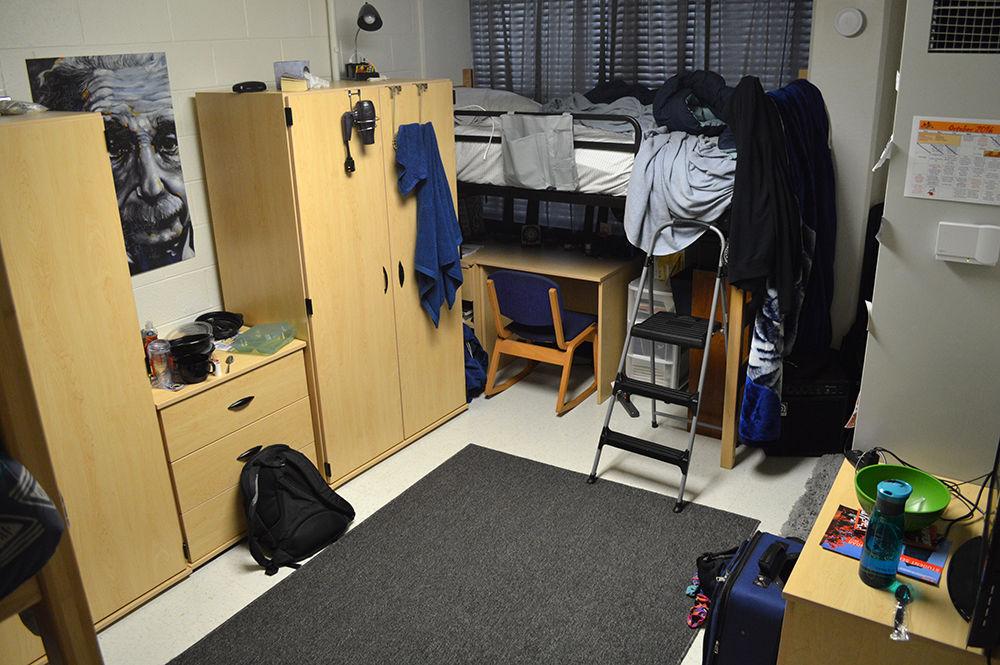A startup in Pittsburgh called Module, led by two NC State graduates, is exploring a way to incorporate architecture into residential housing with an advanced Lego-like solution that allows houses to grow with the families or individuals who own them.
Brian Gaudio, a 2014 architecture alum and CEO of Module, and Drew Brisley, a 2012 industrial design alum and the Director of Innovation, were friends in college and started Module last spring to address increasing urbanization and low levels of millennial homeownership in the U.S.
“We live in a society where bigger has been better, but millennials don’t always want that,” Gaudio said.
Today, many young people want to move to more urban areas, but can’t afford the homes built there before them; which are often large. They are then forced to rent instead of buy, leading to a decrease in homeownership.
That is where Module comes in.
Before founding the startup, Gaudio completed a seven-week tour of South America, including Bogota, Santiago, Rio de Janeiro, Sao Paulo and Lima. As the most urbanized region in the world, Latin America has a history of “progressive social housing.”
In South America, people rarely build large homes. Instead, they build their homes small and make additions, usually vertically, as their families’ needs and abilities grow. Gaudio helped create a documentary, titled “Within Formal Cities,” that explores the creativity of South American building methods, but he felt that he could do even more with what he learned there.
“Part of founding Module was learning from some really innovative housing ideas from South America and altering them for the U.S. housing market,” Gaudio said.
The other aspect that drove the founding of Module was the idea of “bringing architecture to the masses,” because most people today don’t hire architects to help design or build their homes.
The goal of Module, currently a startup, is to introduce the idea of incremental and customizable housing to the U.S. With three prefabricated starter units and 20 additional units, ranging from a yoga studio to an Airbnb unit, homeowners will be able to start with a home as small as 1,600 square feet and then make additions to the home to fit their growing needs or changing hobbies.
“What we’re hoping is that we make the addition process a lot simpler, less expensive and less time consuming than it would be to modify an existing home,” Gaudio said.
He compared the addition process to the idea of playing with Legos. In simple terms, one could “pop off” only the exterior walls that need to be removed and then connect the new prefabricated additions directly to the home so that it can grow as needed.
“The fact is, the home you need today most likely isn’t going to be the same home you will need in ten or twenty years,” Brisley said. “The problem that Module is addressing is very important and it offers a unique solution, so we think there will be a lot of demand for it.”
To help buyers decide which starter units to choose, Gaudio and Brisley have created what Gaudio referred to as a “Myers-Briggs test for housing.” The test asks questions that take into account needs, hobbies, goals and abilities before suggesting the starter unit that would best suit different individuals.
As a startup, Module still has many steps to take, and the first of these is designing a pilot so units can start being introduced to the market. Gaudio hopes that they will have a pilot by the end of 2017 and be able to begin introducing units to the market next year. The problem is that prototyping a house is both challenging and expensive.
“The price to build a new water bottle is maybe $50, but to build a home is very expensive, and in order to get off the ground, we need more capital,” Gaudio said.
In order to attract investors to get the necessary capital, Gaudio has helped present Module in various pitch competitions. Module won first place at a 90 second MIT pitch competition and is currently a finalist in the South by Southwest (SXSW) pitch competition in the Social and Culture category.
During the SXSW competition, Gaudio will have 120 seconds to pitch Module to an audience and group of judges and then will have seven minutes of question and answer.
“The real prize in this competition is getting to pitch in front of a large audience and investor judges,” Gaudio said. “Pittsburgh doesn’t have the same network or prestige as Silicon Valley or New York, but the SXSW competition will be great exposure to the media and could help us in raising investment to continue doing what we’re doing and build a pilot.”
Gaudio and Brisley are excited for the opportunities that could arise from the SXSW competition, and though the startup culture is often demanding and harsh, the two friends have proven that they have the dedication and ingenuity necessary to be part of the conversation about the future of housing in the U.S.













